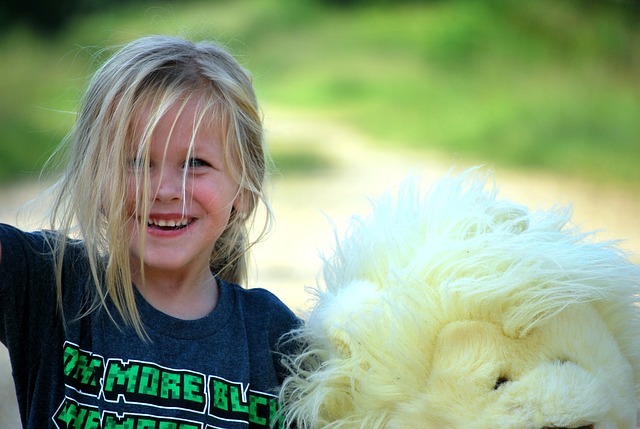We understand children and know how to support them and their needs.
Maybe your child is saying that it’s okay, or everything is fine, when you can tell that they might not be. Perhaps your child wants everyone to think that they are good and a strong kid who can handle it all.
Children can thrive, especially with support and a tools for taking care of their feelings–this is when we come in. We are here to help parents and children thrive even with all they may be going through.
Help for Children and Their Families
Therapy For Children
Does Your Child:
Worry too much?
Appear sad all the time?
Have frequent tantrums or angry outbursts?
Struggle with emotional reactivity?
Seem neurodivergent?
Display high sensitivity?
Have trouble listening or paying attention?
Get into trouble at school?
Fight with you or others?
Struggle with emotional reactivity?
Get bullied, or bully other children?
Have difficulty with managing intensities or energy at home or school?
If you answered yes to any of these, we offer hope.
We Offer Hope and Understanding
With intensive training in child and family mental health, and with a specialty in developmental and neurodivergent differences we are skilled at working with children of all ages, including younger children and teens, as well as their parents and families. Children, and yes, even angry teens, typically look forward to counseling because it can be spontaneous and engaging.
Kids who are suffering need help and relief. Children typically respond swiftly to counseling because they are developmentally prepared for change.
Through active therapy that can involve play, acting, sand tray, art, crafts, and music, children and teens process their emotions, learn to identify and express their feelings in healthy and safe ways, and gain positive skills to help them cope with their personal challenges.
Children usually express their problems very differently than adults. This can include social problems, school challenges, worry or depression. For example, when worried or depressed, a child may appear moody, irritable, withdrawn, or manipulative, or possibly pick fights, have frequent tantrums or angry outbursts.
Children are naturally intuitive, and often sense others’ emotional states. Children who are challenged beyond their ability to cope can more easily become stressed, depressed, overwhelmed, or frustrated. Transitions or changes in routine can also trigger excessive worry or acting-out behavior.
Counseling for Neurodivergent Children
Neurdivergent children may particularly benefit from specialized counseling support because they are often misunderstood or misdiagnosed. In addition, research shows that more neurodivergent individuals may develop anxiety or depression symptoms than the typical population.
At TheraThrive, we understand the particular traits and intensities common to neurodivergent and highly sensitive children, and we are here to help!
Change Happens
Kids can learn to identify and manage their emotions, reactivity or attitude. Children do develop new ways to focus or pay better attention at school or at home—and the benefits to these changes are life-long.
Children and teens are usually naturally intuitive and pick up on what is going on around them, including discord in the home or elsewhere. Children who are in a transition or who are challenged in ways beyond their ability to cope can easily become stressed, depressed, overwhelmed, or frustrated.
Specialization
We specialize in parenting support and treatment of mental health challenges more commonly seen in neurodivergent children, including:
- Anxiety
- OCD
- Issues around transition and change
- Depression, including existential depression
- High sensitivity
- Gifted and twice exceptionality
- Attachment that is stronger than helpful
- Sensory processing disorder
- ADHD
- Behavioral issues
- Grief/loss
- PANS/PANDAS
Many children we see are verbally gifted like Andrew in this video, however the type of emotional tools and support they will most likely benefit from will correspond to their emotional development, not just their intellectual development.
We Offer Experience
Our founder, Dr. Grace Malonai, has been providing therapy services to children and their families since 1998, has conducted research on the gifted population, has presented at national and international conferences on issues pertaining to autism, ADHD, learning disabilities, twice exceptinality and giftedness, and other topics pertaining to neurodivergence. She and has taught college and graduate level courses in human development and family relationships since 2003.
Each therapist at TheraThrive has been trained extensively in matters pertaining to neurodivergence, and each offers particular strengths to the team. Call us for a free phone consultation—we would love to hear from you!
How Child Therapy Works
First, during a consultation phone call, we will assess the situation to determine if the first meeting would best be with parent(s) and child, just parents, or a split meeting (where half is for parents and half is just with the child).
When we meet, we will also want information about why you sought support, learn developmental history, other history, strengths, and also explore what you have already tried. These things will help us as we work as a team to create a plan to help your child get through those challenges.
Role of Parents (or Guardians)
Although we work with your child individually, parents are encouraged and expected to participate in the therapy work, in order to maximize the benefits of counseling and so that your child can practice and utilize skills at home. Depending upon your child’s needs and development, parent participant might be via:
-
Brief check-ins
-
Monthly family meetings
-
Parent consultation meetings
-
Other arrangement we make together
Online play therapy
Online play therapy is pretty much the same as play therapy that occurs in the office, except that it is done online via secure video conferencing.
Online play therapy utilizes play therapy techniques, art therapy, music therapy and other types of child oriented counseling tools. Research shows that the benefits to online therapy match the benefits of in-office therapy.
Supplies for Online Counseling
Some online play therapy may benefit from having certain supplies on hand, such as crayons, markers, paper, games, or other materials. Your child’s therapist will contact you before your child’s online counseling session if any supplies are needed. Your therapist may also send you handouts, stories, or worksheets in PDF or JPG format for online therapy with children.
Play therapy is as diverse as it is fun.
It is an important part of our practice, and can be essential when working with children. It can involve games, toys, puppets, cars, costumes, crafts, or even physical movement (such as sword play, dance or catching lizards).
Play therapy is a way to help clients, especially children, achieve optimal mental health. Even neurodivergent children (and adults) who have strong verbal skills can benefit from play therapy, which provides an alternative means to process emotions, challenges, and what is going on in their lives.
Play therapy has been shown to improve social, emotional, behavioral and other mental health issues. Not just for children, we also have therapeutic games and crafts geared specifically for teens and adults.
Play therapy can help clients resolve conflict, solve challenges, and learn positive preventative coping skills. For further information, please view this short video (above), which explains how play therapy works.
Art Therapy
Many of our clients really like doing art projects. More than a fun and entertaining way for children to learn therapeutic skills, art therapy can be part of a deep healing process for people of all ages. It can also provide an enjoyable way to practice positive coping skills, as well as providing space for for creativity and personal reflection.
Child, teen and adult clients can make meaning of their lives via art projects, improve self-esteem, find strengths, and become more self-aware. Creating art can also bring about profound insight and understanding of relationships, coping, responses to stress and trauma.
Sandplay (Sand Tray Therapy)
Sandplay is the process of arranging small figurines and representational objects in therapy sand that represent an inner state of being. Therapy sand has the properties of both wet and dry sand, so it can be light and sandy or molded and sculpted.
Sandplay is a powerful therapeutic technique in that it can change how clients view themselves within their world, and bring their inner world out, to an expressive world. It also gives space for deep healing, processing and discovering new outcomes.
Sandplay is especially helpful because it can be a non-verbal way to communicate when verbal communication is difficult or does not feel right.
We utilize complete sandplay set-ups at our offices, and children, teen and adult clients are all welcome to sandplay.
To start sandplay, we ask clients to choose figurines to place in the sand. Clients typically shape or mold the sand before placing the figurines. Molding play sand can feel really good—it allows for expression of emotion, plus the texture of the sand on the hands can be calming and relaxing.
When choosing figurines, clients pick whichever they are most drawn to, even if there is no obvious reason for making those choices.
It is actually very easy to get into the process of building a sandtray world. It is an inner experience of creativity, guided by the subconscious.
Although we may explore a story around the sand tray world, it is okay not to know the meaning of the scene that is created. The strength of sandtray work is that it is healing and powerful, even if the outcome is not explicit.

